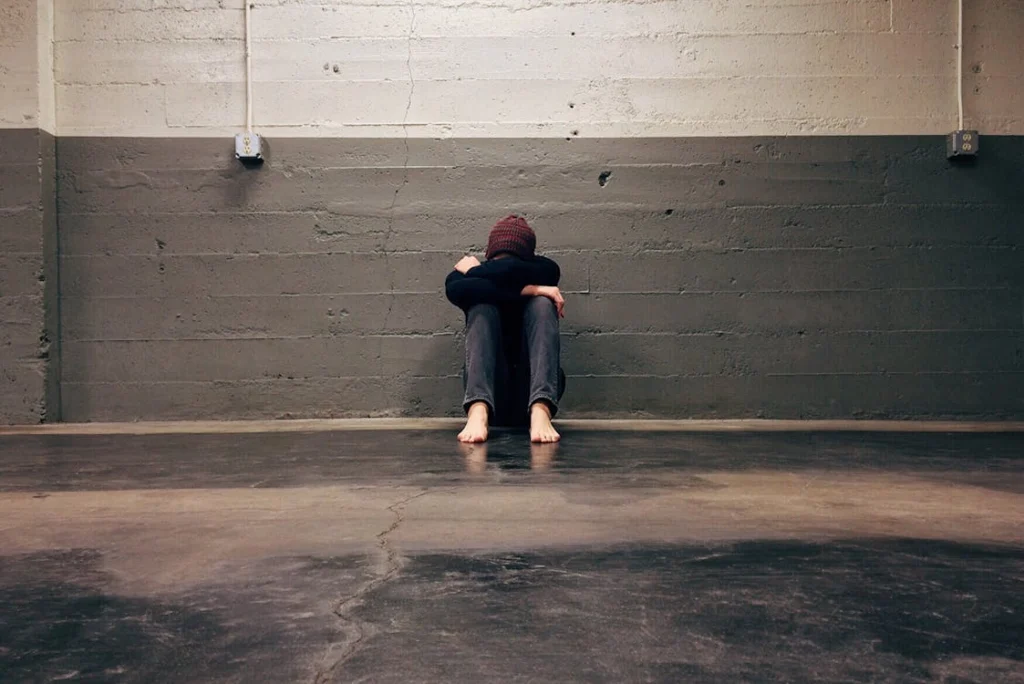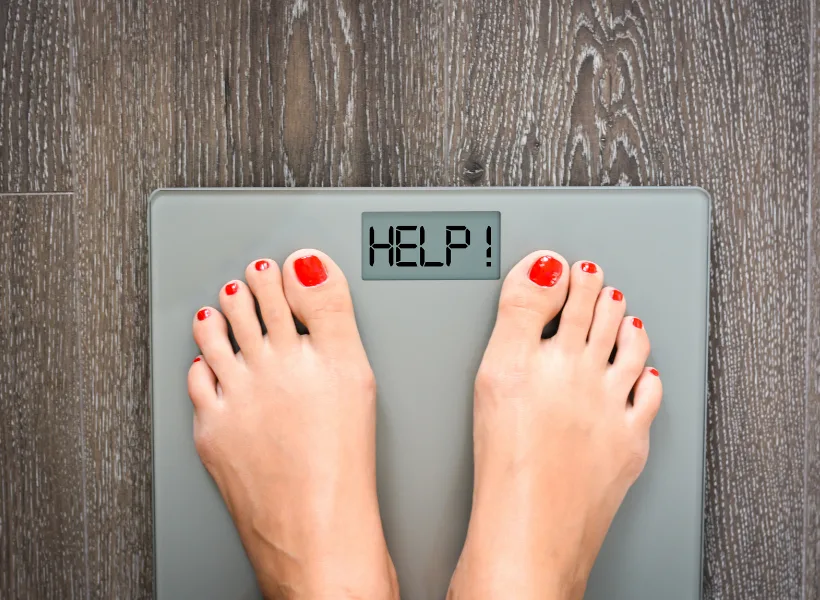Anxiety is something we all experience from time to time. Whether it’s the nerves before a big work presentation, the awkwardness of meeting new people, or simply trying to fit all our errands into one busy afternoon, those feelings are part of being human. In fact, a bit of anxiety is often our brain’s way of keeping us alert and focused when it matters most.
For most people, these feelings of anxiety come and go. A deep breath, a little pep talk, and they can usually push through the nerves. The worst that might happen? Maybe a few shaky hands or a faster heartbeat that others notice. But for some, anxiety doesn’t just fade away—it intensifies and becomes overwhelming, making even simple tasks feel impossible to tackle.
Generalized Anxiety Disorder And Panic Attacks

For millions of people, anxiety goes far beyond occasional nerves. Generalized anxiety disorder (GAD) and panic disorder affect nearly 13 million adults in the U.S. (1). People with these conditions often experience constant, overwhelming anxiety about everyday situations. It’s not just about being nervous—it’s persistent and excessive, making it nearly impossible to control their feelings. In the case of panic disorder, this anxiety can spiral into full-blown panic attacks, leaving individuals feeling intense fear or dread that seems to come out of nowhere.
These disorders don’t just affect someone’s emotions; they impact their ability to handle basic daily tasks or interactions. At its most severe, anxiety can lead to sudden episodes like panic attacks, where both physical and mental distress take over.
A panic attack often feels like it comes out of nowhere, bringing a racing heart, trembling, and shortness of breath. Sometimes it’s so bad that the person starts hyperventilating—rapid, shallow breathing that can be scary enough to send someone to the emergency room (2). While specific triggers—like certain places or situations—can sometimes set off these attacks, they often happen unpredictably, adding to the anxiety of when the next attack might strike.
This constant worry about having a panic attack can make everyday life feel like a minefield. But researchers are making strides in understanding what might cause these attacks, giving new hope to those who suffer.
Potential Cause For Anxiety And Panic Attacks
A common cause of anxiety and panic attacks is a low level of serotonin, a key neurotransmitter that helps regulate mood and overall feelings of well-being. When serotonin levels are too low, it’s much easier to feel anxious or even depressed. But serotonin doesn’t just appear on its own—it’s made from an amino acid called tryptophan, and that process heavily relies on vitamin B6 and iron.
Researchers from Okayama University decided to dig deeper into the connection between panic attacks and these essential nutrients. They conducted a study on patients who visited the emergency room after experiencing severe panic attacks or hyperventilation episodes. By comparing the levels of B6 and iron in these patients with those in healthy individuals, they discovered something important: those who had panic attacks had significantly lower levels of both vitamin B6 and iron than the control group.
While more research is needed, this study marked a huge step in understanding how nutritional deficiencies might contribute to panic attacks. It opens the door to exploring ways to manage or even prevent these attacks by addressing these deficiencies. For those dealing with generalized anxiety disorder or panic disorder, this new information offers hope for a future where panic attacks are less frequent—or maybe even a thing of the past.
Simple Tips for Easing Anxiety and Panic Attacks
Dealing with anxiety can be tough, but there are some small steps you can take to feel a little more in control. Here are a few tips that might help:
1. Add More Nutrient-Packed Foods
Try including foods rich in vitamin B6 and iron—things like fish, leafy greens, and beans. These nutrients can help support your mood by boosting serotonin, which keeps those anxious feelings in check.
2. Breathe Deeply When Anxiety Strikes
It sounds simple, but deep breathing can make a big difference when anxiety creeps in. Next time you feel overwhelmed, take a slow breath in through your nose, hold it for a moment, then exhale slowly through your mouth. Repeat a few times until you feel calmer.
3. Move Your Body
You don’t need to hit the gym for hours—just a quick walk or some light stretching can help release endorphins, the feel-good chemicals that naturally fight stress and anxiety.
4. Create a Chill Routine
Find something relaxing that helps you unwind at the end of the day, whether it’s reading a book, listening to soothing music, or practicing meditation. Making time to relax can work wonders for your mental state.
5. Don’t Be Afraid to Ask for Help
If anxiety is feeling too heavy to handle, reaching out to a professional can be a great first step. Sometimes, just talking it out with a therapist or support group can offer relief and new strategies to cope.
Taking these small steps can help you start to feel a little more at ease. Everyone’s journey is different, but with some time and patience, you can make anxiety a smaller part of your daily life.
A New Hope for Managing Anxiety

This discovery from Okayama University may provide a breakthrough in how we understand and potentially treat anxiety and panic attacks. The link between low levels of vitamin B6, iron, and the occurrence of panic attacks suggests that addressing these deficiencies could help prevent or reduce the severity of attacks. While it’s still early, and further research is needed, these findings offer a new perspective for individuals struggling with generalized anxiety disorder and panic disorder.
By simply focusing on nutrient intake, particularly vitamin B6 and iron, there may be a new way to manage these overwhelming feelings and reclaim control. This discovery doesn’t promise an immediate solution, but it does provide a promising step forward, offering hope that panic attacks can be anticipated or even avoided in the future.
For anyone dealing with these conditions, knowing that such research is underway offers a sense of reassurance. With each new study, we get closer to understanding how to make anxiety less of a constant companion—and how to bring calm and peace back into daily life.




Mattie Campbell
Wednesday 12th of February 2025
This just isn't accurate. There are many factors to panic attacks and anxiety - downplaying mental health issues to be based around vitamin deficiency is downright dangerous and massively inaccurate. I've worked in mental health for many years and was an educator for 10 years. There are lots of issues with this piece and it's almost shameful conflict of interest.
To be clear...
While certain vitamin deficiencies may be associated with increased symptoms of depression and anxiety, the relationship is complex and not fully understood, by researchers, scientists or mental health professionals. It's essential to approach this article and the "findings" with caution and consult healthcare professionals before making any changes to vitamin intake or relying on supplements as a primary treatment for mental health conditions.
The article itself has several issues regarding citations, potential inaccuracies, conflicts of interest and unsupported claims -
1. Lack of Proper Citations: The article references a study by researchers from Okayama University linking panic attacks to deficiencies in vitamin B6 and iron. However, it fails to provide specific details about the study, such as the title, publication date, or a direct link, making it difficult to verify the information. I found this study online but again it absolutely cannot be used as a stand alone piece of information with regards to mental health.
2. Overgeneralisation of Study Findings: The article suggests that addressing vitamin B6 and iron deficiencies could prevent or reduce panic attacks. While the study may indicate a correlation, asserting causation without acknowledging the need for further research is premature and potentially misleading.
3. Simplification of Serotonin Production: The article states that serotonin production "heavily relies on vitamin B6 and iron." While these nutrients may play a role in neurotransmitter synthesis, serotonin production is a complex process influenced by various factors, and attributing it primarily to these two nutrients oversimplifies the biology involved. The brain is very complex and still isn't fully understood by professionals.
4. Lack of Diverse Expert Opinions: The article does not include insights from multiple experts or sources, which could provide a more balanced perspective on the topic. More research is needed in order to draw any conclusions.
5. Absence of Disclaimers: Given the health-related content, the article should include disclaimers advising readers to consult healthcare professionals before making dietary changes or taking supplements, especially since excessive intake of certain vitamins and minerals can have adverse effects.
6. Conflict of Interest: The website contains affiliate links and may profit from the promotion of certain products. This potential bias is not addressed in the article, which could influence the objectivity of the information presented.
While the article touches on an interesting aspect of mental health, it lacks sufficient citations, may overstate conclusions, and does not provide a comprehensive view of the topic. Anyone reading it should approach the information with caution and seek advice from qualified healthcare professionals before making any health-related decisions.